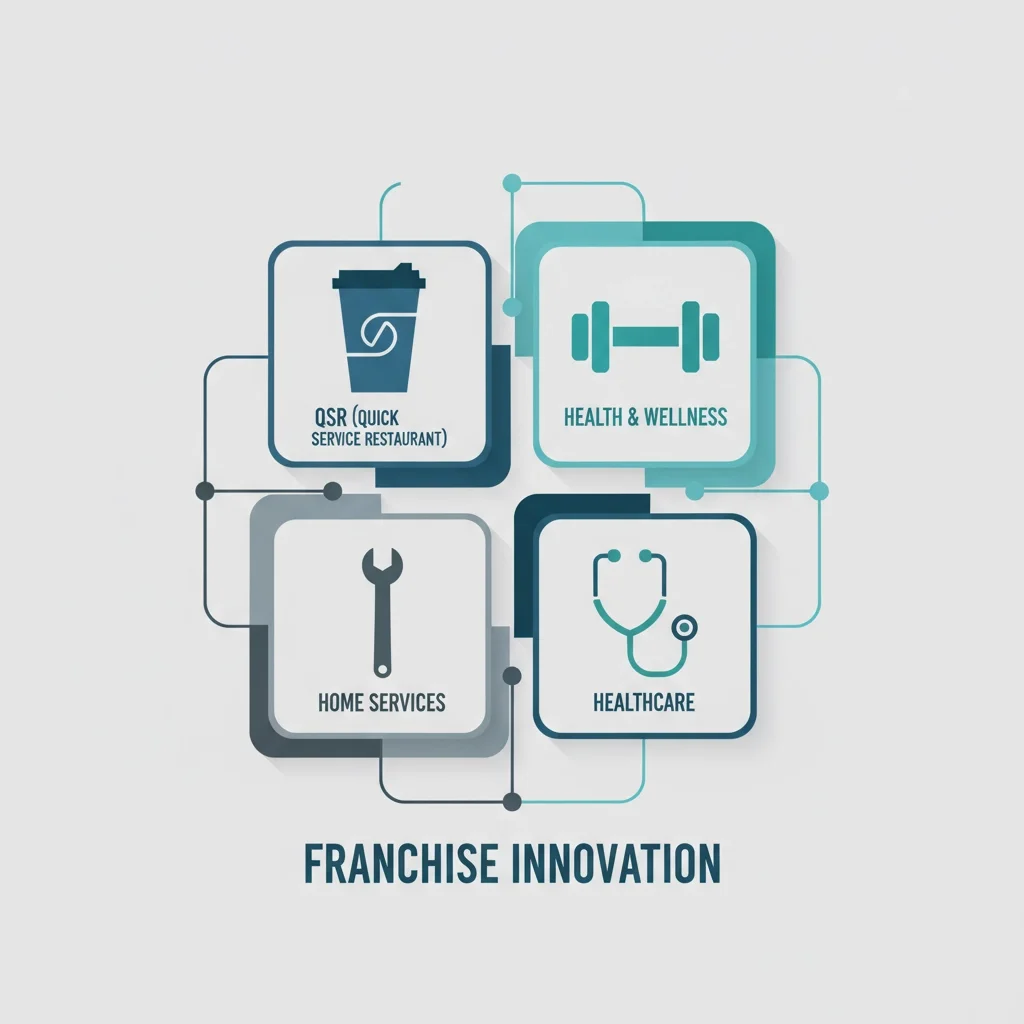The Franchise Owner's Guide to Getting Noticed by Private Equity in 2025
Private equity is having a moment with franchises. More than 12.4% of active U.S. franchise brands now have some level of PE ownership or backing, and that number keeps climbing. If you're a franchise owner wondering how to get on their radar in 2025, you're asking the right question at the right time.
The thing is, PE firms aren't just throwing money at any franchise that comes their way. They're looking for specific qualities that signal long-term stability and serious growth potential. Understanding what makes them tick – and how to position your franchise accordingly – could be the difference between staying under the radar and landing that game-changing investment.
What PE Firms Really Want (It’s Not What You Think)
Here's the reality: PE firms don't fall in love with your brand story or your passion for serving customers (though those things matter). They fall in love with numbers. Specifically, they want to see proven unit-level economics and satisfied franchisees who are actually making money.
Think about it from their perspective. PE firms typically hold investments for 3–5 years, so they need predictable cash flows during that period. Franchises deliver this through recurring revenue streams – those royalty fees and ongoing payments from franchisees create the steady income that PE investors dream about.
But beyond the financials, they're hunting for franchises with scalable models and advanced operational strategies. This means having standardized procedures for everything from training new franchisees to managing supply chains. When everything runs like clockwork, it's easier for PE firms to identify what's working and replicate it across the entire system.
The Operational Sweet Spots That Get PE Attention
Certain operational characteristics make franchise systems irresistible to PE investors. Low capital requirements are a big one – since most of the investment comes from franchisees rather than the franchisor, profit margins stay healthy. It's like having other people fund your growth while you collect the recurring fees.
Territorial operating rights also catch their eye. When franchisees have exclusive territory protection, it creates stable market positions and predictable returns. No one likes getting into bidding wars with the guy across the street who has the same brand.
Here's something most franchise owners don't think about: pricing power. PE firms love franchises that can maintain or even increase prices without losing significant demand. We saw this play out beautifully during the recent inflationary period – successful franchise systems passed costs through to consumers and maintained their margins. That's the kind of resilience that gets PE firms excited.
Risk diversification through multiple locations across different geographies is another winner. Regional economic downturns are a lot less scary when you're spread across multiple markets.
The Hot Industries for 2025
Not all franchise sectors are created equal in the eyes of PE investors. Quick-service restaurants continue to dominate M&A activity, and for good reason – the QSR market has grown at an annual rate of 3.2%, proving its staying power. These businesses have shown they can adapt to changing consumer preferences while maintaining consistent demand.
Health and wellness franchises are absolutely on fire right now. Same with home services. These sectors represent some of the biggest opportunities we're seeing in 2025. At Boxwood Partners, we've been right in the middle of this trend, helping companies like 4ever Young Anti-Aging Solutions secure growth investment and working on multiple home services deals.
But PE firms are also expanding into professional services, healthcare, and automotive services. The common thread? Service-oriented franchisors operating in recession-resistant industries. These businesses maintain demand even when the economy gets rocky, making them reliable all-weather investments.
Proving Your Franchisees Are Actually Happy
Here's something that separates the winners from the also-rans: PE investors can smell unhappy franchisees from a mile away. They know that sustainable growth depends on healthy franchisor-franchisee relationships, so they're going to dig deep into franchisee satisfaction metrics.
You need to be able to demonstrate strong franchisee satisfaction through concrete numbers – renewal rates, franchisee profitability data, and real testimonials. PE firms want evidence that your franchise owners are thriving, not just scraping by.
They also want to see that you emphasize collaboration and best-practice sharing between franchisors and franchisees. The days of "take it or leave it" franchise relationships are over. Modern PE firms structure deals where franchisees get comprehensive support – technology infrastructure, operational expertise, marketing resources – in exchange for strict adherence to the franchise model.
This isn't just feel-good stuff. It's smart business. When franchisees succeed, the whole system succeeds. PE firms understand this better than anyone.
Building the Sophistication That PE Demands
Private equity targets franchisors who have adopted advanced operational and financial strategies. This means implementing real technology solutions, not just basic point-of-sale systems. It means having robust training programs that actually work. It means creating systems for data collection and performance analysis that give you insights into what's driving success at the unit level.
PE investors favor leadership teams that can demonstrate professional management capabilities, not just entrepreneurial vision. They want to see that you've built something bigger than yourself – a system that can operate and grow without being completely dependent on the founder's daily involvement.
You also need to showcase your ability to scale technology, brand recognition, and operational efficiencies across units. Show that you have systems in place to grow from a handful of locations to dozens or hundreds without losing quality or consistency. This scalability is what creates substantial value for PE investors.
The Documentation That Opens Doors
Getting noticed isn't just about having the right operational setup – it's about being able to prove it with clean, professional documentation. PE firms evaluate franchises as financial instruments first, so having comprehensive financial records and clear projections is non-negotiable.
You need to document your recurring revenue model with precision. Show exactly how royalty fees flow through the system, what your average franchisee generates in revenue, and how those numbers have trended over time. Franchisee satisfaction metrics should be quantified and tracked consistently. Growth trajectory data should tell a clear story about where you've been and where you're headed.
This documentation process often reveals gaps in operational sophistication that need to be addressed before approaching PE firms. That's actually a good thing – better to discover these issues internally than have them exposed during due diligence.
Making Your Move in 2025
The franchise-PE landscape in 2025 is more competitive than ever, but it's also full of opportunity for franchise systems that have their act together. The key is positioning yourself as more than just a franchise – you need to be seen as a sophisticated, scalable business platform with proven unit economics and a satisfied franchisee base.
Focus on documenting everything we've discussed: your operational standardization, franchisee satisfaction metrics, technology adoption, and management team capabilities. Make sure your financial house is in order with clean records and realistic projections.
Most importantly, don't wait until you need PE investment to start building these capabilities. The franchises that get noticed by PE firms in 2025 are the ones that have been building sophisticated operations and strong franchisee relationships for years, not months.
The PE money is out there, and it's looking for franchise systems that combine the stability of proven models with the growth potential of scalable operations. The question is: will your franchise be ready when opportunity comes calling?



